Codetown
Codetown ::: a software developer's community
Android at GatorJUG
We had a great time, ate lots of pizza and learned a lot about mobile programming at the May GatorJUG meeting with Kevin Neelands at Santa Fe College. Kevin brought his computer loaded up with Eclipse and the Android dev environment.
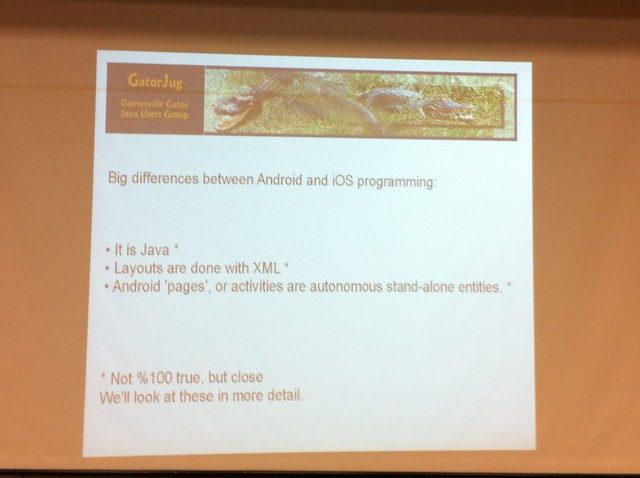
Kevin began by describing some of the aspects that make Android programming familiar to Java programmers. He showed us his Periodic Table app he developed using iOS for iPhone and then described how he went about converting it to run on Android. If you get a chance, search for Neelands Periodic Table of the Elements - it's one of the most popular free apps out there on mobile devices.
We had a few giveaways that night including a shiny new copy of an advanced Java programming book and a few T-Shirts. Reed Tillis showed us his mobile docking station with a built in full size keyboard and nice sized monitor. Motorola did a good job.
Stay tuned - we'll have lots of interesting meeting presentation topics coming up in the future. And, if you're interested in sponsoring a meeting or presenting please contact me.
Notes
Welcome to Codetown!
 Codetown is a social network. It's got blogs, forums, groups, personal pages and more! You might think of Codetown as a funky camper van with lots of compartments for your stuff and a great multimedia system, too! Best of all, Codetown has room for all of your friends.
Codetown is a social network. It's got blogs, forums, groups, personal pages and more! You might think of Codetown as a funky camper van with lots of compartments for your stuff and a great multimedia system, too! Best of all, Codetown has room for all of your friends.
Created by Michael Levin Dec 18, 2008 at 6:56pm. Last updated by Michael Levin May 4, 2018.
Looking for Jobs or Staff?
Check out the Codetown Jobs group.
InfoQ Reading List
Ramp Builds Internal Coding Agent That Powers 30% of Engineering Pull Requests

Ramp has shared the architecture of Inspect. This internal coding agent has quickly reached about 30% adoption for merged pull requests in the company’s frontend and backend repositories. The fintech company shared a detailed technical specification. It explains how they created a system that gives AI agents the same access to the development environment as human engineers.
By Claudio MasoloVoidZero Announces Oxfmt Alpha with Rust-Powered Performance and Prettier Compatibility
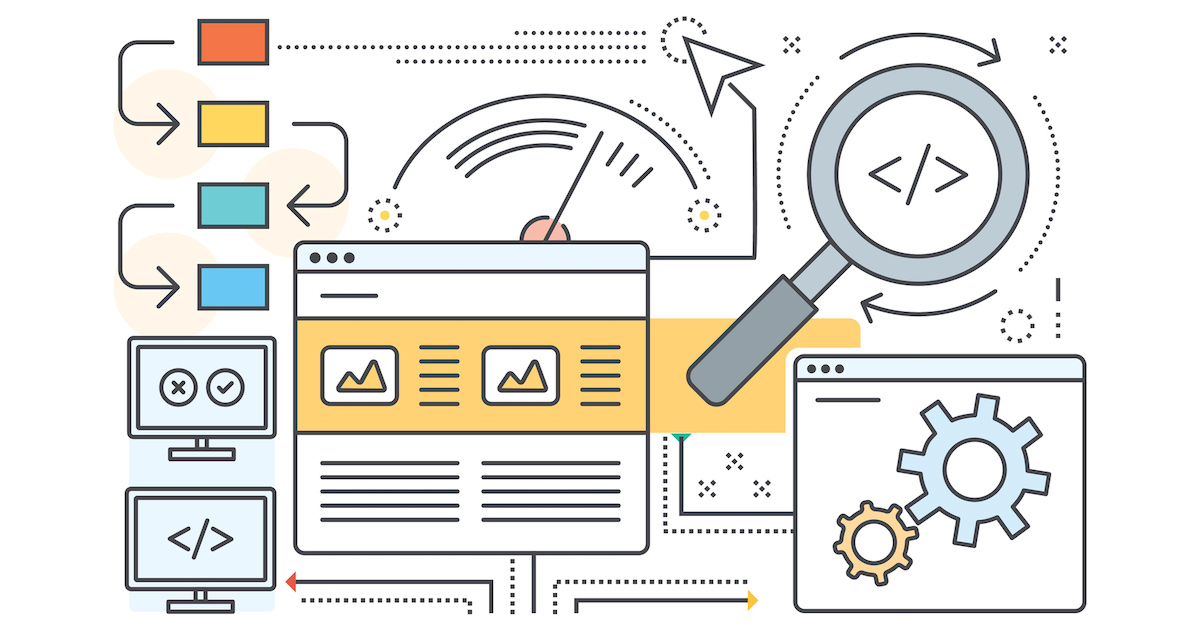
VoidZero has unveiled Oxfmt, a cutting-edge Rust-based code formatter that offers over 30x faster performance than Prettier for JavaScript and TypeScript projects. Compatible with existing Prettier configurations, Oxfmt addresses developer needs for efficiency and style consistency. Enjoy seamless migration, enhanced capabilities, and a commitment to community-driven improvements.
By Daniel CurtisPresentation: Kraken's Serverless Architecture for Keeping the Grid Green
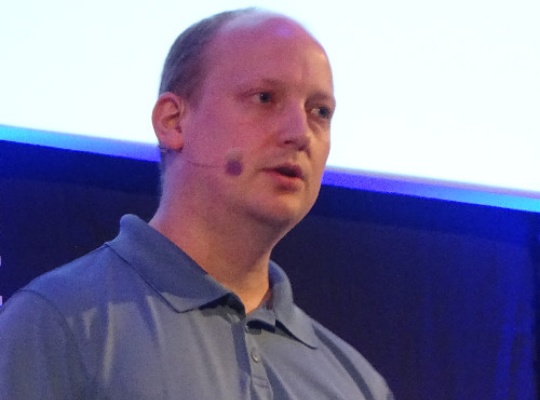
Kevin Bowman shares how Kraken Technology balances the UK’s 30GW energy grid using renewable sources. He discusses an architectural blueprint leveraging AWS Lambda, EventBridge, and DynamoDB to manage grid-scale batteries and virtual power plants. Learn how they solve millisecond-latency frequency response and 24-hour predictive optimization to keep the lights on through a serverless stack.
By Kevin BowmanDoorDash Applies AI to Safety Across Chat and Calls, Cutting Incidents by 50%
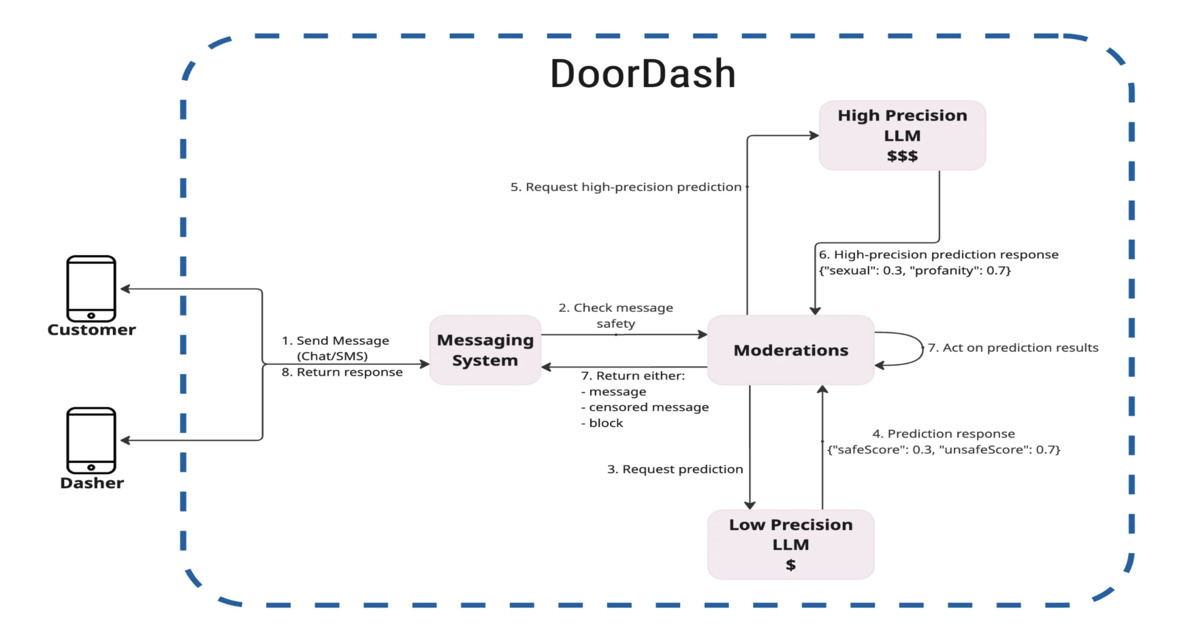
DoorDash deploys SafeChat, an AI-driven safety system for moderating chat, images, and voice calls between Dashers and customers. Using a layered text moderation architecture, machine learning models, and human review, SafeChat detects unsafe content in real time, enabling immediate actions and reducing low- and medium-severity safety incidents by roughly 50 percent.
By Leela KumiliOpenCost Looks Back on 2025 Milestones and Charts a Roadmap for 2026

The OpenCost project, an open-source cost and resource management tool hosted by the Cloud Native Computing Foundation (CNCF), has published a year-in-review reflecting on its progress in 2025 and outlining priorities for 2026.
By Craig Risi
© 2026 Created by Michael Levin.
Powered by
![]()
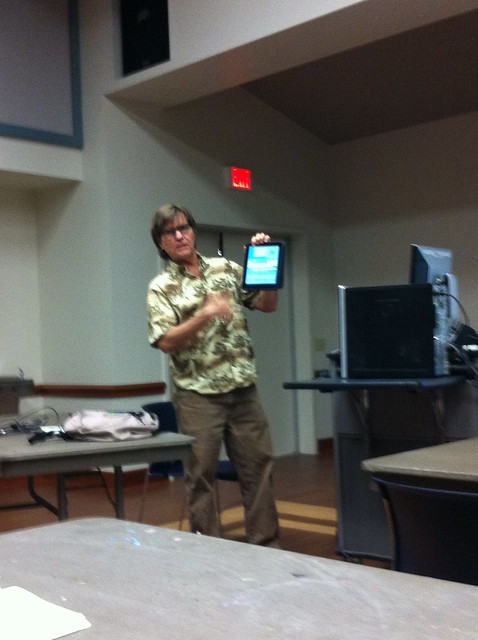
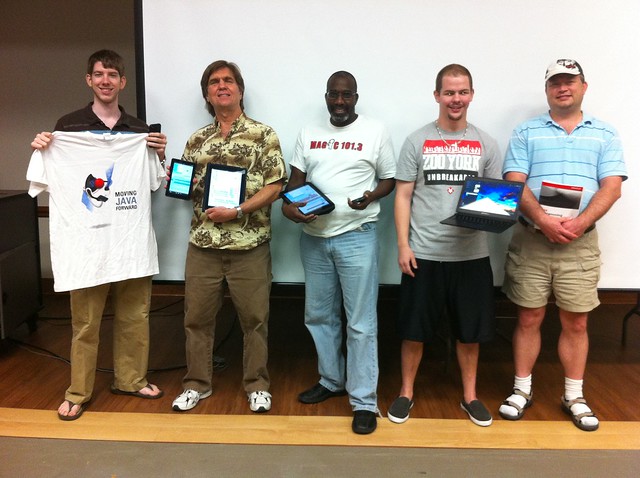
You need to be a member of Codetown to add comments!
Join Codetown